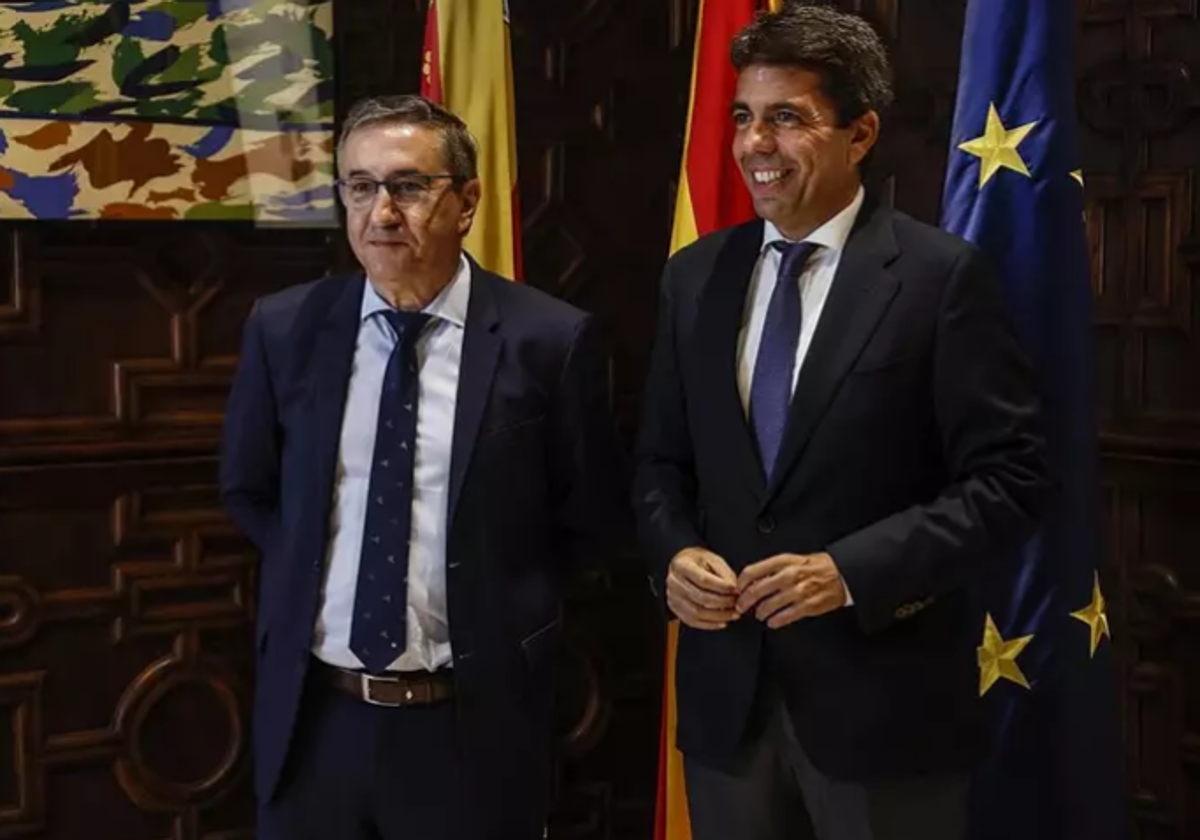

Sections
Services
Highlight

Pau Sellés
Alicante
Lunes, 2 de septiembre 2024, 07:25
The 2024-25 academic year will represent a true break in the education system of the Comunitat compared to the previous model introduced by the Botànic government. Although the start of the last school year was already under the new executive led by Carlos Mazón, it wasn't until now that significant changes have become noticeable.
In recent weeks, these changes have become evident with the implementation of a single district system, which has established new criteria for families when choosing schools. All this under the banner of "educational freedom," a concept heavily promoted by the new government, and with which it has named the law that abolishes the multilingualism model introduced by the Botànic executive.
Changes will also take effect from early childhood education, with free education for children aged 0 to 3 years; extending to secondary education with changes in the curriculum and in the system for certifying Valencian language proficiency.
The start date for classes for Infant, Primary, ESO (Compulsory Secondary Education), Baccalaureate, and Vocational Training stages will be September 9th, and classes will end on June 18th, 2025. The school year will have 179 instructional days, one less than last year. Basic qualification training programs and second-chance vocational training will begin on September 11th, 2024 and end on June 18th, 2025.
Non-instructional days this year will include Christmas holidays from December 23rd, 2024 to January 6th, 2025, inclusive; and Easter holidays from April 17th to April 28th, 2025, inclusive. Additionally, during this school year, public holidays such as October 9th (Day of the Valencian Community), November 1st (All Saints' Day), December 6th (Constitution Day), March 19th (Saint Joseph's Day), and May 1st (International Workers' Day) will not be instructional days.
One of the main novelties this year is the free education for children aged 0 to 3 years. This measure will be implemented through grants that will be directly provided to private early childhood education centers or municipalities if they are public.
This free education initiative comes with an investment by the Consell of €162.98 million, which will cover maintenance costs for centers as well as labor costs for staff over a ten-month period. Families will still need to pay for services such as meals or school supplies.
Secondary education will also see curricular changes this year. Students will have more sessions in Mathematics and Music and fewer in Ethical Values. In first through fourth ESO grades, there will be four weekly hours of Mathematics, and Music will be reintroduced in third ESO. Additionally, there will no longer be a requirement to take Interdisciplinary Projects.
Numerical grading for report cards has been reinstated. The creation of an elective subject called Responsible Finance and Consumption is among other novelties.
The new system for certifying Valencian language proficiency will differ from the current one. Starting now, schools will issue certificates at the end of each course. For retroactive certification, individuals must contact the Department of Education. This retroactivity applies to the past sixteen academic years.
Certification levels range from A1 to C1. Students who achieve a grade of seven out of ten in Valencian over two years of Baccalaureate will receive a C1 certificate. Those who pass two years without reaching a grade of seven will receive a B2 certificate.
The B1 level will be awarded to students who pass Valencian in their first year of Baccalaureate and at least three years of ESO or all four years of ESO if applicable. Lastly, A2 certification is given to those who pass Valencian over six years of Primary Education.
The 2024-25 school year also marks the return of a single district system for school selection processes, giving families more freedom in choosing schools, regardless of their place of residence. According to figures provided by the Department of Education, 96.20% of three-year-old children in Alicante have secured a place at their first or second choice educational center.
In total, 10,666 children will start their schooling journey in first-year Infant Education in the academic year 24/25, plus an additional 2,740 students who started in two-year-old classrooms this year and automatically advance to three-year-old classes. The most requested schools in the province are CEIP La Condomina in Alicante and San Rafael-Salesianos and Ferrández Cruz in Elche.
This admission process includes specific points chosen by each center to regulate student admissions. The Department had to annul some criteria deemed "discriminatory", due to reasons ranging from family origin to chosen language for studies. Under this new system, each center could select four specific criteria from twenty-two proposed by the Department and add two additional criteria.
Changes proposed by the recently approved Educational Freedom Law regarding language base selection at each center won't come into general effect until the academic year 2025-26. However,schools in predominantly Spanish-speaking areas will see substantial changes this year as their educational communities have opted to switch from Valencian to Spanish as their base language under Mazón's "free choice" proposal.
Publicidad
Publicidad
Te puede interesar
Los libros vuelven a la Biblioteca Municipal de Santander
El Diario Montañés
Publicidad
Publicidad
Esta funcionalidad es exclusiva para registrados.
Reporta un error en esta noticia

Debido a un error no hemos podido dar de alta tu suscripción.
Por favor, ponte en contacto con Atención al Cliente.

¡Bienvenido a TODOALICANTE!

Tu suscripción con Google se ha realizado correctamente, pero ya tenías otra suscripción activa en TODOALICANTE.
Déjanos tus datos y nos pondremos en contacto contigo para analizar tu caso

¡Tu suscripción con Google se ha realizado correctamente!
La compra se ha asociado al siguiente email
Comentar es una ventaja exclusiva para registrados
¿Ya eres registrado?
Inicia sesiónNecesitas ser suscriptor para poder votar.